Invited Speakers for the World Conference 12
Invited Speakers for the World Conference 12
 Sonja Batten, Ph.D.*
Sonja Batten, Ph.D.*
Sonja Batten is a Senior Associate with Booz Allen Hamilton and clinical psychologist. She was formerly Deputy Chief Consultant for Specialty Mental Health with the U.S. Department of Veterans Affiars, with extensive experience in traumatic stress, postdeployment psychological health, substance use disorders, and women’s health. She has many years of experience in the Department of Veterans Affairs (VA), working on national mental health policy for United States veterans. Sonja has been active in the ACT community for almost two decades, providing ACT training in the United States and internationally for the past 15 years. She is one of the original ACT trainers recognized by the Association for Contextual Behavioral Science, is currently President of ACBS, and is the author of the well-received text, Essentials of Acceptance and Commitment Therapy.
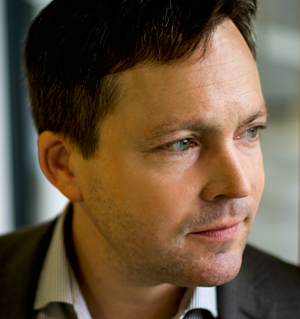
Frank Bond, Ph.D.* (Co-author: Ross White, Ph.D.)
Frank Bond, Ph.D., is Professor of Psychology and Management at Goldsmiths College, University of London, where he is also Director of the Institute of Management Studies. His research and practice focus on identifying the psychological processes by which ACT, leadership and organisational interventions impact the health and productivity of organisations and their employees. Frank is a Fellow and Past-President of the Association for Contextual Behavioral Science.
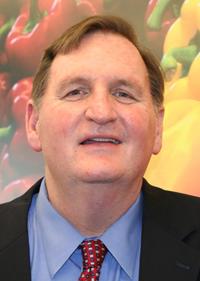
Kelly D. Brownell, Ph.D.*
Kelly Brownell is Dean of the Sanford School of Public Policy at Duke University, and is Professor of Public Policy and Professor of Psychology and Neuroscience. He also serves on the Board of Directors of the Duke Global Health Institute. Prior to joining the faculty at Duke, Brownell was at Yale University where he was the James Rowland Angell Professor of Psychology, Professor of Epidemiology and Public Health, and Director of the Rudd Center for Food Policy and Obesity. While at Yale he served as Chair of the Department of Psychology and as Master of Silliman College.
Brownell has been elected to membership in the Institute of Medicine and has received numerous awards and honors for his work, including the Lifetime Achievement Award from the American Psychological Association, Graduate Mentoring Award from Yale, and Distinguished Alumni Awards Purdue and Rutgers. In 2006 Time magazine listed Kelly Brownell among “The World’s 100 Most Influential People” in its special Time 100 issue featuring those “.. whose power, talent or moral example is transforming the world.”
Jan De Houwer, Ph.D.* (Co-authors: Yvonne Barnes-Holmes, Ph.D. & Dermot Barnes-Holmes)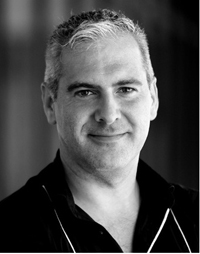
After receiving his Ph.D. from the University of Leuven (Belgium) in 1997, Jan De Houwer was a Lecturer at the University of Southampton (UK) from 1998 to 2001. Since 2001, he has worked at Ghent University (Belgium) where he heads the Learning and Implicit Processes Laboratory. His research is related to the manner in which spontaneous (automatic) preferences are learned and can be measured. Regarding the learning of preferences, he focuses on the role of stimulus pairings (associative learning). With regard to the measurement of preferences, he developed new reaction time measures and examined the processes underlying various measures. Jan De Houwer (co-)authored more than 190 publications in international journals including Psychological Bulletin and Behavioral and Brain Sciences. He was co-editor of the journal Cognition and Emotion and is a member of the editorial board of several journals including Journal of Experimental Psychology: General and Psychological Bulletin.
 Harold D. Green, Jr., Ph.D.*
Harold D. Green, Jr., Ph.D.*
Harold D. Green, Jr. (Hank) is a Senior Behavioral Scientist at the RAND Corporation in Santa Monica, where he is the director of the RAND Center for Applied Network Analysis and Systems Science. Hank uses network analyses to understand the social and cultural determinants of health. He leads an NIH-funded longitudinal study that investigates influence and selection processes associated with substance use and other risk behaviors among American adolescents (including an exploration of how the transition to high school may impact those processes). Other projects focus on the propagation of HIV-related conspiracy beliefs among HIV+ African-Americans in Los Angeles; sexual health and sexual risk-taking among Lebanese men who have sex with men, commercial sex workers, and trans-gender individuals in Beirut; and how changing network composition and structure are linked to HIV care adherence among HIV+ Ugandans. High-risk populations are also a focus, investigating connections among network structure, network composition, substance use, and risky sexual behavior for homeless women, homeless men, and homeless youth. His funding sources include the University of California Tobacco Related Disease Research Program, the National Institute for Child and Human Development, the National Institute on Alcohol Abuse and Alcoholism, the National Institute on Drug Abuse, the National Institute on Mental Health, and the MacArthur Foundation. He holds a Ph.D. in Anthropology from the University of Florida and is an Alumnus of the University of Illinois Training Grant in Quantitative Psychology, of the National Center for Supercomputing Applications Center for the Humanities, Arts and Social Sciences, and of the Science of Networks in Communities Research Group.
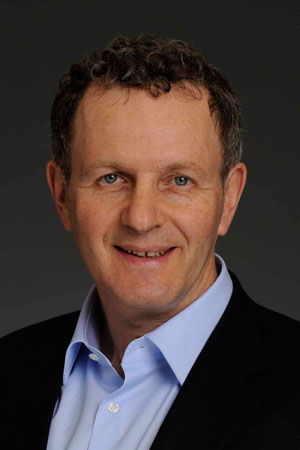 Zindel Segal, Ph.D.*
Zindel Segal, Ph.D.*
Zindel Segal, Ph.D., is Distinguished Professor of Mood Disorders at the University of Toronto Scarborough and a Senior Scientist in the Campbell Family Research Institute at the Centre for Addiction and Mental Health. Dr. Segal has studied and published widely on psychological treatments for depressive and anxiety disorders for more than 30 years. Most recently, he and his colleagues have pioneered the combined use of mindfulness meditation and cognitive therapy as an effective relapse prevention treatment. Both clinical and neural findings indicate that patients who practice mindfulness develop meta-cognitive awareness of their emotions which, in turn, reduces their reactivity to negative affect. Dr. Segal's publications include Mindfulness-based Cognitive Therapy for Depression, and The Mindful Way Through Depression, and The Mindful Way Workbook, a patient guide that outlines this approach.
 Gregory Madden, Ph.D.
Gregory Madden, Ph.D.
Gregory J. Madden received his Ph.D. degree from West Virginia University in 1995. He began his study of behavioral economics during his post-doctoral years at the University of Vermont. Dr. Madden’s research is largely focused on the behavioral economics of addiction and health decision-making. Much of Dr. Madden’s research has focused on impulsive decision-making. His early research documented extreme impulsivity in individuals addicted to illicit drugs and cigarettes. Later research revealed that impulsive decision making predicted cocaine self-administration in rats. His current work is exploring the possibility of reducing impulsivity. Dr. Madden’s second line of research explores behavioral economic approaches to influencing the dietary choices of children. These research endeavors are supported by grants from the National Institute on Drug Abuse and the US Department of Agriculture. Dr. Madden serves on several advisory committees and ad-hoc grant-review panels, and his peer reviewed publications have been cited more than 3,500 times. He is currently the Editor of the Journal of the Experimental Analysis of Behavior; he co-edited Impulsivity: The Behavioral and Neurological Science of Discounting (APA Books), and served as the Editor-in-Chief of the two-volume APA Handbook of Behavior Analysis.
Susan Schneider, Ph.D.
Biopsychologist Susan Schneider obtained her graduate education from Brown University (mechanical engineering) and the University of Kansas (developmental psychology/behavior analysis), and is currently a Visiting Scholar at the University of the Pacific. A research pioneer, Schneider was the first to apply the generalized matching law to sequences and to demonstrate operant generalization and matching in neonates. She's proposed a new mathematical model for sequence choice, and her publications also cover the history and philosophy of behavior analysis and the neglected method of sequential analysis. Schneider has long championed the inclusive “systems theory” approach to nature-nurture, and published several influential journal reviews in that area. Her recent book for the public, The Science of Consequences: How They Affect Genes, Change the Brain, and Impact Our World, describes operant behavior principles, their important role in the larger realm of nature and nurture, and their full range of applications. It's a selection of the Scientific American Book Club and received coverage in the journal Nature (see scienceofconsequences.com). Schneider was a friend of B. F. Skinner.
 Daniel "D.J." Moran, Ph.D.
Daniel "D.J." Moran, Ph.D.
I’d prefer my biography to reflect the most vital and meaningful things in my life, so I should prioritize writing about my family, friends, and love for heavy metal. Alas, this is a professional biography, so it is more appropriate to focus on the fact that I am the founder of the MidAmerican Psychological Institute, a thriving behavior therapy clinic in Chicagoland. I am also the founder of Pickslyde Consulting, an organization aimed at using evidence-based applications to improve performance and wellness in the workplace. Because I have excellent colleagues helping me run these organizations, I was able to accept a position as Senior Vice-President for Quality Safety Edge, a pioneering organization aimed at implementing behavior-based safety processes worldwide.
I earned my Ph.D. from Hofstra in 1998, worked as a university professor for a decade, helped treat dozens of people with Discovery Studio’s Hoarding: Buried Alive show, and currently serve the ACBS Board as secretary-treasurer. I co-authored ACT in Practice (New Harbinger) with my friend Patty Bach. Last year, I published the book Building Safety Commitment in an effort to help front-line workers and leaders improve their safety by learning about mindfulness and values-based motivation.
David Sloan Wilson, Ph.D.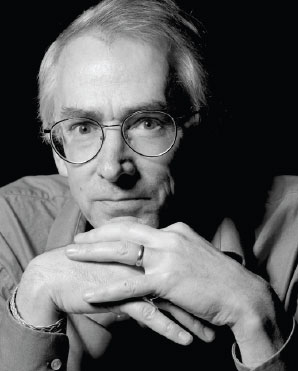
David Sloan Wilson is President of the Evolution Institute and SUNY Distinguished Professor of Biology and Anthropology at Binghamton University. He uses evolution as a general theoretical framework to understand and improve the human condition, in the same way that evolutionary theory functions in the life sciences. He has been working with ACBS founder Steve Hayes and other ACBS members to integrate principles of ACT and RFT with evolutionary theory. One result of this collaboration is an article in Behavioral and Brain Sciences titled "Evolving the Future: Toward a Science of Intentional Change", which will be published in late 2014 and is currently available online at the BBS website.
* Denotes a Plenary Speaker at WC12